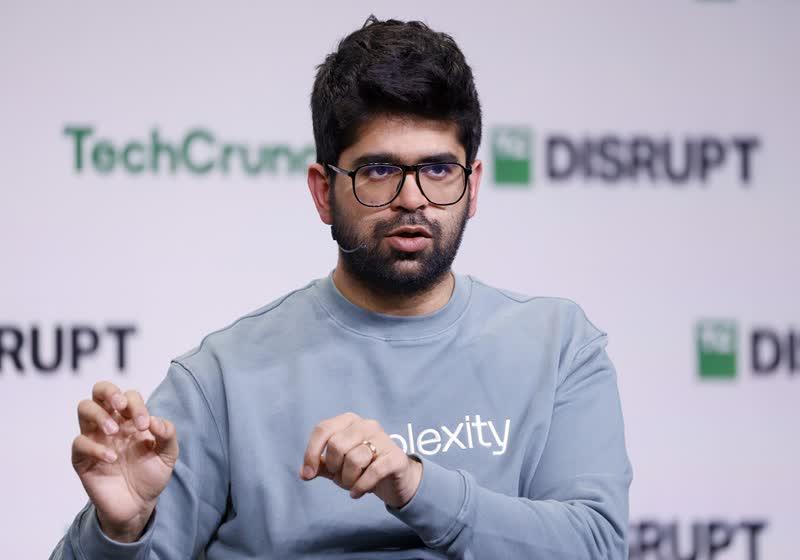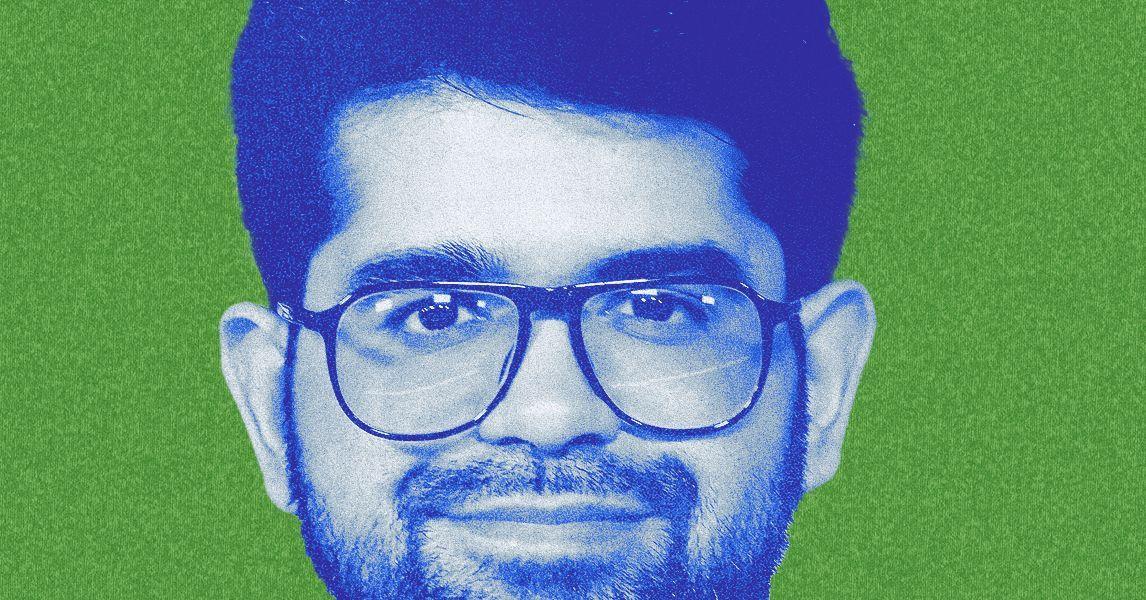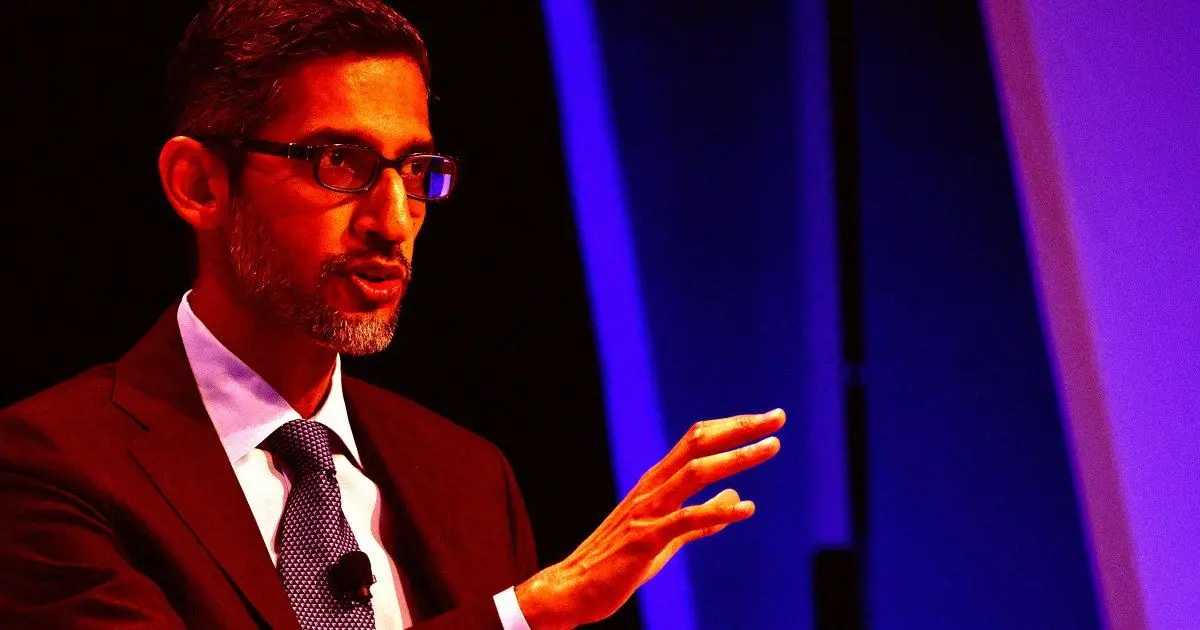Perplexity CEO Warns AI Startups: Big Tech Will "Copy Anything That's Good"
2 Sources
2 Sources
[1]
Perplexity CEO's warning to startups: big tech will "copy anything that's good"
Serving tech enthusiasts for over 25 years. TechSpot means tech analysis and advice you can trust. Big quote: As artificial intelligence rapidly evolves, companies must navigate a landscape marked by fierce competition, where imitation is a common challenge. Perplexity CEO Aravind Srinivas, addressing students at Y Combinator's AI Startup School, offered a stark warning to young entrepreneurs: "They will copy anything that's good." Standing before an audience of aspiring founders, Srinivas underscored the importance of unwavering commitment. He advised, "work incredibly hard," acknowledging both the opportunities and risks in building something new. According to Srinivas, if a startup uncovers a business model capable of generating hundreds of millions or even billions of dollars in revenue, larger players will inevitably take notice. "If your company is something that can make revenue on the scale of hundreds of millions of dollars or potentially billions of dollars, you should always assume that a model company will copy it," he said. Srinivas explained the pressures driving this behavior. "They raise like tens of billions or close to 50 billion and they need to justify all that CapEx spend, and they need to keep searching for new ways to make money," he said. "I think you got to live with that fear." Perplexity emerged in December 2022 as an "answer engine," aiming to provide clear and concise responses sourced through live web searches. This represented a departure from the prevailing approach at the time, in which chatbots could only draw on limited information collected during their initial training period, which was often several months out of date. Within months of Perplexity's launch, Google's Bard - now rebranded as Gemini - introduced web-crawling features as well. In May 2023, OpenAI's ChatGPT added browsing capabilities, and Anthropic's Claude gained real-time web search in March 2025. Jesse Dwyer, Perplexity's head of communications, described what it feels like to compete against tech's biggest names. In a message to Business Insider, Dwyer asserted that large companies do everything they can to drown out your voice. The rivalry now extends beyond chatbots. On July 9, Perplexity introduced its web browser, Comet. That same day, Reuters revealed that OpenAI was developing a browser to challenge Google Chrome. Dwyer added a note of caution about this new browser "arms race," saying that browser wars ought to benefit users, but if users end up losing, it will likely be due to monopolistic tactics by a dominant "everything company" imposing its product on the market. For Dwyer, the risks are clear, noting that any browser developed by OpenAI would essentially be similar to Google's. With major technology companies regularly incorporating innovations discovered at startups, Perplexity's leaders have little doubt that imitation is a fact of life in today's AI sector.
[2]
Perplexity CEO Aravind Srinivas warns tech founders: 'Big Tech will copy anything that's good'
Aravind Srinivas, CEO of AI search startup Perplexity, has advised student entrepreneurs to expect their ideas to be copied by large technology companies. Speaking at Y Combinator's AI Startup School, Srinivas said that if a new product has potential to generate substantial revenue, big tech firms will likely replicate it. While addressing undergraduate, graduate and PhD students, Srinivas explained how major players like Google, Meta and OpenAI are always scanning the market for new ideas that can be scaled. "If your company is something that can make revenue on the scale of hundreds of millions of dollars or potentially billions of dollars, you should always assume that a model company will copy it," he said. He pointed to his own company's experience. In December 2022, Perplexity launched an answer engine with real-time web crawling. Shortly after, the same feature was rolled out by Google's Gemini, ChatGPT, and Anthropic's Claude. "They will copy anything that's good. I think you got to live with that fear," Srinivas said. Despite the risk of being copied, Srinivas urged founders to keep building and to focus on developing unique products and strong brands. "Work incredibly hard," he told the students, and "don't get discouraged by imitation." Perplexity's communications lead, Jesse Dwyer, echoed the concern. Speaking to Business Insider, Dwyer said, "Big Tech companies not only copy your features but they also try to drown your voice." Perplexity recently launched its Comet browser, shortly before OpenAI announced its own plans to launch an AI-powered browser. Dwyer warned about the risk of monopolistic practices in the browser space. "Browser wars should be won by users, and if users lose Browser War III, it will be from a familiar playbook: monopolistic behaviour by an 'everything company' forcing its product on the market," he told Business Insider. OpenAI is preparing to launch a web browser that could compete with Google Chrome, according to a Reuters report. The browser is expected to integrate ChatGPT-like features directly into the interface. This includes real-time summarisation, smart search, voice commands and contextual memory. With ChatGPT reportedly drawing 500 million users each week, OpenAI's new browser may shift traffic and data away from Google. That could affect Alphabet's ad revenue, which depends heavily on Chrome and its default search settings. Meanwhile, Airtel has partnered with Perplexity to provide its advanced subscription service, Perplexity Pro, free for one year to all its users. This includes those on Airtel's mobile, broadband, and DTH services. The offer, which is typically valued at ₹17,000 annually, is now available through the Airtel Thanks app at no extra cost. Unlike Google's Gemini Pro offer targeted at students, Airtel's collaboration with Perplexity covers a wider demographic -- from school and college students to researchers and working professionals. Perplexity Pro offers real-time, structured answers by tapping into models like GPT-4.1 and Claude, effectively replacing traditional search results with contextual, citation-based insights. Users can upload documents, ask follow-up questions, and summarise complex data within a single interface. For students managing research deadlines or preparing for exams, Perplexity Pro acts like a digital assistant, simplifying dense academic material and generating organised responses from trusted sources. Professionals in fields such as consulting, design, and law can use the tool to extract insights from reports, draft content, or generate visuals. The Pro version also includes tools like Perplexity Labs for image generation and coding support, making it useful across a range of tasks.
Share
Share
Copy Link
Aravind Srinivas, CEO of Perplexity, cautions AI startup founders about the inevitability of big tech companies copying successful innovations, highlighting the competitive landscape in the AI industry.
Perplexity CEO's Warning to AI Startups
Aravind Srinivas, CEO of AI search startup Perplexity, has issued a stark warning to aspiring entrepreneurs in the AI industry: "They will copy anything that's good"
1
. Speaking at Y Combinator's AI Startup School, Srinivas emphasized the fierce competition and imitation challenges faced by startups in the rapidly evolving artificial intelligence landscape2
.
Source: TechSpot
The Inevitability of Imitation
Srinivas cautioned that if a startup uncovers a business model capable of generating substantial revenue, larger players will inevitably take notice. "If your company is something that can make revenue on the scale of hundreds of millions of dollars or potentially billions of dollars, you should always assume that a model company will copy it," he stated
1
. This sentiment reflects the pressures driving big tech companies to constantly search for new revenue streams and justify their massive investments in AI technology.Perplexity's Experience with Imitation
Perplexity, which launched in December 2022 as an "answer engine" with real-time web crawling capabilities, has firsthand experience with this phenomenon. Shortly after its launch, similar features were rolled out by major players such as Google's Gemini (formerly Bard), OpenAI's ChatGPT, and Anthropic's Claude
1
2
. This rapid imitation underscores the competitive nature of the AI industry and the speed at which innovations are replicated.Advice for Aspiring Founders
Despite the challenges, Srinivas urged founders to persevere. He advised students to "work incredibly hard" and not be discouraged by imitation
2
. The Perplexity CEO emphasized the importance of developing unique products and strong brands to stand out in the competitive landscape.
Source: ET
The Browser Wars: A New Frontier
The competition has now extended beyond chatbots to web browsers. Perplexity recently launched its Comet browser, shortly before news broke of OpenAI's plans to develop an AI-powered browser to challenge Google Chrome
1
2
. This development signals a new "browser war" that could significantly impact the tech industry.Related Stories
Concerns About Monopolistic Practices
Jesse Dwyer, Perplexity's head of communications, expressed concerns about potential monopolistic practices in the browser space. He warned that if users lose "Browser War III," it could be due to an "everything company" forcing its product on the market
1
. This caution reflects broader concerns about market dominance and fair competition in the AI sector.Impact on the Tech Landscape
The entry of AI-powered browsers could have far-reaching consequences for established players like Google. With ChatGPT reportedly attracting 500 million users weekly, OpenAI's new browser could potentially shift traffic and data away from Google, affecting Alphabet's ad revenue which heavily relies on Chrome and its default search settings
2
.Conclusion
As the AI industry continues to evolve at a rapid pace, startups face the dual challenge of innovating and protecting their innovations from imitation by larger competitors. While the landscape is competitive, it also presents opportunities for those willing to work hard and develop unique, valuable products. The ongoing developments in AI-powered search and browsing technologies suggest that the tech industry is on the cusp of significant changes that could reshape the digital experience for users worldwide.
References
Summarized by
Navi
Related Stories
Recent Highlights
1
Google Gemini 3.1 Pro doubles reasoning score, beats rivals in key AI benchmarks
Technology

2
ByteDance's Seedance 2.0 AI video generator triggers copyright infringement battle with Hollywood
Policy and Regulation

3
ChatGPT cracks decades-old gluon amplitude puzzle, marking AI's first major theoretical physics win
Science and Research








